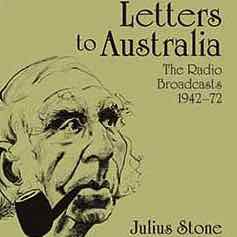By James Moore
One aspect of the role of Civil Liberties Australia is to ensure that the law does not trespass on the freedoms which citizens in democracies are entitled to expect.
Good law is not identified by its legal logic, but by its effect in the society in which it operates. As a result, CLA is concerned with legislation passed by parliament and with the Common Law (or case law) made by judges.
In both cases the role of the judges as decision-makers is crucial.
Some people don’t appreciate that, in coming to their decisions, judges often have a range of choices available …which is usually the reason for split judgments of a court, say 2 judges v 1 other judge.
It is naive to think that dissenting judges did not know the law. The noted English judge Lord Reid described as a fairy tale the belief that in some Aladdin’s Cave there lies hidden the Common Law in all its splendour, and that on judges’ appointments to the bench there descends knowledge of the magic words, “Open Sesame”.
Even so-called “black letter” lawyers, noted for literal interpretations of the law, are not immune from outside influences. Former High Court judge, Dyson Heydon, wrote on his retirement that the High Court of Australia and other courts of appeal may contain overbearing personalities and weaker spirits with a herd mentality which threatens judicial independence. His comments were published in 2013 under the heading “Great dissenter takes a swipe at closed minds of the bench”.
 The education of lawyers is of prime importance, and generations of NSW lawyers were influenced by Prof Julius Stone, Professor of Jurisprudence and International Law at Sydney University between 1942 and 1972, and Visiting Law Professor at UNSW from 1972 until his death in 1985. Sir Anthony Mason, Chief Justice of the High Court from 1987 to 1995 and former HC judge Michael Kirby have both written of Stone’s influence on their thinking.
The education of lawyers is of prime importance, and generations of NSW lawyers were influenced by Prof Julius Stone, Professor of Jurisprudence and International Law at Sydney University between 1942 and 1972, and Visiting Law Professor at UNSW from 1972 until his death in 1985. Sir Anthony Mason, Chief Justice of the High Court from 1987 to 1995 and former HC judge Michael Kirby have both written of Stone’s influence on their thinking.
Stone taught that a judge can do no more than make a judgment as to which of the available choices will best serve the public interest in having a stable and predictable legal system which is also responsive to social needs. He was always saying that the life of the law is not logic, but experience.
Two of Stone’s teachings, which remain fresh in my mind 60 years later, are the nature of the judicial process and that the way a question is expressed can often predetermine the answer.
Stone gave as an example of the latter, the claim of a taxpayer that taxes should be levied equitably over all members of the community. It could also be regarded as a public interest as the state needs to have adequate resources, and it could also be viewed as a social interest in allowing the efficient functioning of political institutions.
Julius Stone was a Solon-like legal philosopher who taught his students about the ambiguities of the law. In some respects, CLA is performing a similar role in questioning our existing structures and laws in an ongoing quest for fairness and justice.
– James Moore, CLA member

